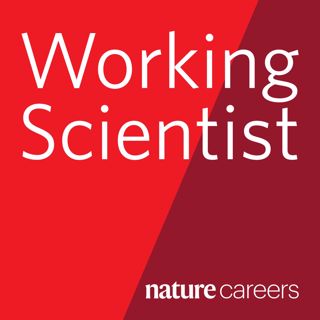Om avsnittet
Julie Gould asks six higher education experts if it's now time to go back to the drawing board and redesign graduate programmes from scratch.Suzanne Ortega, president of the US Council of Graduate Schools, says programmes now include elements to accommodate some of the skills now being demanded by employers, including project and data management expertise. "We can't expect to prepare doctoral researchers in a timely fashion by simply adding more and more separate activities," she tells Gould. "We need to redesign the curricula and the capstone project," referring to the PhD as a long-term investigative project that culminates in a final product.Jonathan Jansen, professor of education at Stellenbosch University, South Africa, calls for more flexible and modular programmes and describes as an example how MBA programmes have evolved from a full-time one year course to include part-time online only programmes and a "blended" combination of the two approaches. "It's about trying to figure out in terms of your own lifestyle what kind of progarmme design works for you," he says. "One size does not fit all."But Jansen's colleague Liezel Frick, director of the university's centre for higher and adult education, says it's important to remember the ultimate goal of a PhD. She tells Gould: "I get the point around flexibility but it's still a research focused degree. You still have to make an original contribution to your field of knowledge. Otherwise it becomes a continuing professional development programme where you can do odds and ends but never get to the core of it, which is a substantive research contribution."David Bogle, a doctoral school pro-vice-provost at UCL, London, says it's important to remember that graduate students are part of a cohort and community who should be respected and rewarded, not looked down on and treated as second class citizens. "At the moment there's a certain amount of 'I'm the supervisor. You should be looking to me as the primary source of inspiration,' when in fact the inspiration comes from peers, professional communities, training and cross disciplinary activities."This is the second episode in a five-part series timed to coincide with Nature's 2019 PhD survey. Many of the 6,300 graduate students who responded call for more one-to-one support and better career guidance from PhD supervisors. Hosted on Acast. See acast.com/privacy for more information.
Senaste avsnitten

How studying octopus nurseries can shape the future of our oceans

How we slashed our lab’s carbon footprint

Meet the retired scientists who collaborate with younger colleagues

A dumpster full of mercury and other things to avoid: lab closures made simple

Pension planning and psychosocial support: how institutions can help academics at the late career stage

“Who am I if not a scientist?” How to find identity and purpose in retirement

Choose your own adventure: navigating retirement after an academic career

The last few miles: how to prepare for the late-career stage in science

Counting the cost of fashion’s carbon footprint

